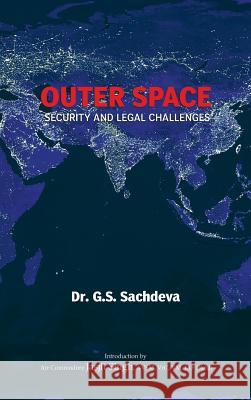Outer Space: Security and Legal Challenges » książka
Outer Space: Security and Legal Challenges
ISBN-13: 9789380502281 / Angielski / Twarda / 2010 / 258 str.
Man has reached the final frontier and breached it too. Historically, the advent into outer space was a spin-off of military adventurism, yet it has laid bare myriad opportunities for scientific exploration, peaceful uses and excavation of natural resources. Each aspect offers great potential for the benefit of mankind and improvement in the quality of life. Till lately, most of the space activities were carried out within the public domain by military personnel. This trend has abated and private enterprise has entered the arena in a big way in telecommunications, broadcasting, remote-sensing and space travel. Many other fields, like gravity-free manufacturing, production of vaccines in a sterile environment, super-conductors in extreme cold ambience, and space hospitality are waiting in the wings to be exploited. The possibilities seem endless. The corpus of Space Law, so far, in the form of Conventions, Treaties and Agreements has come about more out of necessity and urgency consequent to the circumstances or to remedy contingent situations. It has not evolved systematically with experience or over relatively long periods of time. For example, the Outer Space Treaty, however laudable, is a medley of compromises, with advertent loopholes. The Moon Treaty has found little acceptance and fewer ratifications. The Rescue Agreement was an exigent measure. The UN guidelines on remote-sensing and prevention of debris are not mandatory. Commercialisation of outer space by private corporations has already begun and is galloping. But the existing law hardly provides an impetus to this trend - in fact, it is obstructive. Space Law has lagged behind technology and needs to keep in step to regulate activities in outer space for peace and commerce. This book addresses some of these problems and issues viz. Space Law, commercial aspects, military issues of weaponisation and defence strategies, and other space applications. Each chapter aims to highlight some lacunae and shortcomings while, at the same time, offering some viable suggestions. The book is, thus, thought-provoking and timely.











